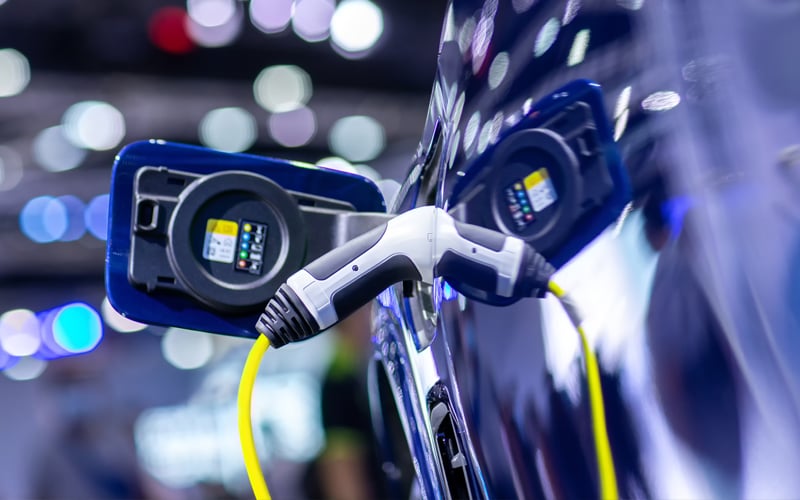Electric Vehicles: Your Questions Answered

Thinking of making the switch to an electric vehicle? You can expect many benefits compared to a diesel or petrol model.
Some of these include:
- More economical running costs
- Reduced tailpipe emissions
- Unrestricted access in Ultra Low Emission Zones (ULEZ)
- A smoother driving experience
Read on to learn more about electric vehicles and find out what models are available on the Motability Scheme.
Are you ready to go green?
Browse the Latest Electric Motability Deals
Is an electric car suitable for my lifestyle?
We understand that making the switch to an electric vehicle is a big decision. Before you decide, think about your lifestyle. Consider your charging options and what your typical journeys look like.
Although some people are concerned about the range of electric vehicles and the availability of charging infrastructure, significant investment and technological advancements in recent years, have alleviated these concerns for most individuals.
Ultimately, the decision to switch to an electric vehicle is a personal one and should be based on your lifestyle. If you require additional information, have a chat with your Motability Specialist – they'll be happy to help.
What’s the difference between an electric and hybrid car?
Electric vehicles run on battery power alone and need to be charged from an external source. Hybrid vehicles are powered by a combination of electric energy and a traditional fuel source. Plug-in hybrid vehicles still have a petrol or diesel engine but have a larger battery which can deliver a longer electric range. These require charging by external means.
Do electric cars need more servicing and maintenance?
Electric vehicles need to be serviced as often as any other type of car. Check your vehicle handbook for the manufacturer's recommended service schedule for your make and model.
Electric vehicles have fewer parts compared to petrol and diesel vehicles. This means that there are less parts that are likely to fail, which actually makes them easier to maintain.
A service on an electric vehicle will include checks on elements such as brake pads, tyres, and fluids. Our technicians will also provide important software updates on your vehicle's technology systems.
How long do electric cars take to charge?
This depends on a number of factors, including the car battery size and the power of the charger.
In the UK, chargepoints are broadly classified into three categories: rapid, fast, and slow.
- Rapid chargers, which have a capacity of over 50kw, can charge compatible EV batteries up to 80% in under 30 minutes, making them the speediest option.
- Fast chargers, with a capacity of 7kw to 22kw, can charge compatible batteries in 1-5 hours, depending on the charger's speed and battery size. They are often located in public places like supermarkets and car parks.
- Slow chargers, with a capacity of 2.4kw to 6kw, take the longest time to charge your EV battery, typically taking 12 hours or more. Consequently, they are often installed in homes and workplaces where rapid charging is not necessary.
Can I get a home chargepoint on the Motability Scheme?
If you are getting your first electric vehicle, and have off-street parking, the Motability Scheme will arrange a free chargepoint and installation. You will only have to pay if additional work is required to gain access to your electricity supply.
What happens if I run out of charge?
Breakdown cover is included in your worry-free Motability package. If your electric vehicle runs out of charge whilst you’re away from home, the RAC will come to you. They will either recover your vehicle or charge it enough to get you to a public chargepoint.
What is the range of an electric car?
This depends on the model you choose; however, the majority of electric vehicles today typically offer a range between 150 - 300 miles. This should be enough to get you where you need to go for everyday journeys. For most people, the range of a fully charged electric car exceeds their daily mileage. This means they will only need to recharge their vehicle every few days.
Are all electric cars automatic?
The vast majority of electric vehicles are automatic. This provides a smooth driving experience with no gear changes to think about. Many people prefer this seamless approach, and it also makes it impossible to stall!
Additionally, as there are fewer moving parts in a single-ratio gearbox, mechanical wear and tear is often reduced.
Can electric cars drive in the rain?
Yes, all electric vehicles are manufactured under strict safety standards. They undergo thorough testing to ensure they are watertight, and that batteries and electric motors are well insulated. You needn’t worry about driving one in the rain - which is handy in the UK!
What electric cars are available on the Motability Scheme?
A wide range of electric vehicles are currently available on the Motability Scheme. With so much choice, you’re bound to find something that suits your lifestyle.
Browse Electric Motability Cars
We hope we’ve helped answer some of your questions regarding electric vehicles. Stay up to date with all your Motability news by keeping an eye on our Newsroom. Alternatively, follow the links below for more information.